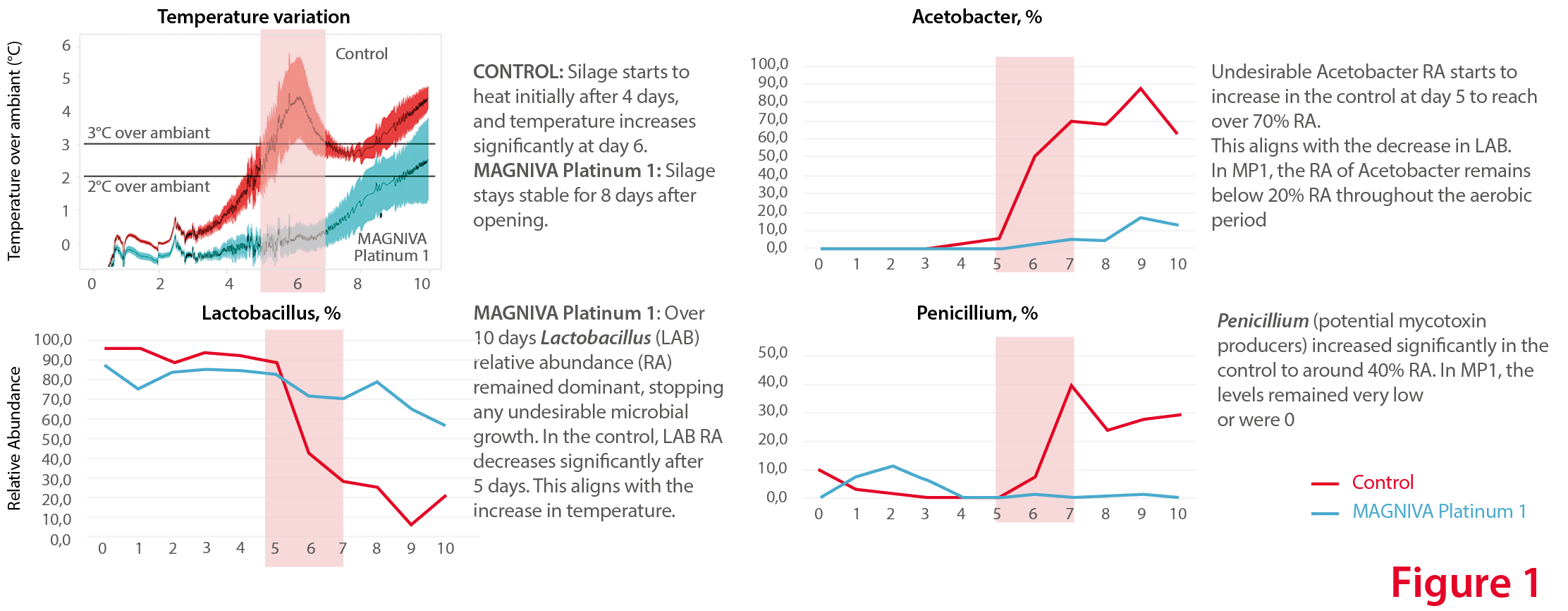Blog | Reading Time 2 minutes
Reducing undesirable microbial growth in silage through feedout maintains energy and nutrient levels
The goal in making clean silage is to minimize the risk of microbial contamination during harvest, bunker/silo construction, and through ensiling up to feedout, as undesired bacteria are known to negatively affect silage quality, rumen function, animal health, and performance.
Producing clean silage starts in the field. Forage crops grown for silage will naturally contain both good and bad microorganisms. High levels of undesired bacteria in silage can cause significant dry matter and nutrient losses, excessive spoilage, feed refusals, low animal performance, or even poor animal health and reproduction. It is possible to control this by reducing undesirable bacteria in the silage thanks to the good fermentation driven by selected forage inoculants.
The art and science of quality silage
Following good harvesting practices will help reduce undesirable microbial contamination, but this does not mean quality silage will necessarily be produced.
Bunker/silo management — and the speed and efficiency of the fermentation — are also critical. Controlling the ensiling fermentation with specifically adapted and selected inoculants can also help maximize nutrient recovery, silage quality, stability and limit the growth of undesired microorganisms.
MAGNIVA benefits
A recent trial1 highlights how using MAGNIVA Platinum reduced undesirable microbial outgrowth in maize silage over 10 days during an aerobic challenge period compared to untreated forage (Figure 1).
Maintaining clean silage through fermentation and feedout is vital when trying to maintain silage nutrient and energy levels. Reducing the undesirable microbial population not only maintains the silage feed value but also reduces heating and losses through aerobic spoilage.
Feeding more, cleaner and better-quality silage not only helps maintain production targets but also helps reduce the impact of high purchased feed costs.
Published Nov 22, 2021 | Updated Jul 5, 2023
Related articles
Need specific information?
Talk to an expert